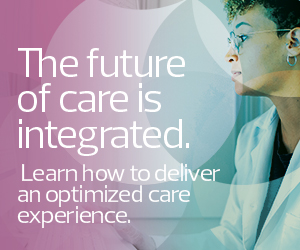3. How Does Generative AI Differ from Other AI/ML Solutions?
Generative AI is distinct from other AI solutions that simply find the requested information from many sources. In contrast, generative AI creates the content based on predicted patterns gleaned from the training data sets.
But with great power also comes great responsibility. The U.S. Department of Health and Human Services’ 2021 Trustworthy AI Playbook was prescient in identifying six primary concerns for AI use in healthcare: data privacy, impartiality and bias, transparency in algorithms, responsibility and accountability, data safety and security, and robust and reliable results.
“Hallucinations,” or outputs that are fabricated and often downright false, have already made news and made companies view generative AI more cautiously. People took notice when two lawyers faced sanctions for using ChatGPT to write a brief — which relied on case law that simply did not exist.
In healthcare, the stakes are even higher: Hallucinations can be inefficacious at best and deadly at worst.
LEARN MORE: What is digital health and how is it evolving?
4. What are Potential Use Cases for Generative AI in Healthcare?
To date, generative AI has been used to help automate the mundane tasks of medical record documentation, generation of patient instructions, and billing and coding. Also, in 2022, the FDA approved AI medical devices that largely fell into broad categories of AI-assisted medical imaging and diagnostic tools and personalized health plan software.
As AI tools improve and trust grows deeper, the sphere of influence will move from the routine tasks that revolve around healthcare to the core functions that constitute healthcare: discovering and developing drugs, preventing unnecessary surgery and creating synthetic “patients” for training purposes.
While generative AI tools already are playing roles in such use cases, their roles will become more typical and even expected as models become even more sophisticated.
EXPLORE: How data and artificial intelligence can improve outcomes.
5. How Can Generative AI be Integrated into a Healthcare Environment?
In the absence of a clear legal and ethical framework that promotes the complete scope of the benefits of generative AI across the healthcare ecosystem, the full potential of the technology cannot be attained.
AI healthcare applications today are cautiously serving in the administrative and supportive roles of the delivery system. But the true potential lies in the shift of technological tools from assistive to primary instruments of medical care. To integrate those tools into the healthcare environment, there must be a framework that addresses hard ethical and legal questions. Who will be practicing medicine: the doctor or the machine? What role should governments play in ensuring safety, impartiality and accountability?
Perhaps this lack of clarity is a result of the far-reaching and ever-changing nature of the technology, which does not lend itself to a single, comprehensive set of laws specific to the technology itself. Instead, we should expect to see those laws and regulations that have applied to the traditional healthcare field adapt and change to address the novel issues raised by generative AI technology. The already complex and highly regulated healthcare environment will need to be re-ordered with intention and creativity to advance at the speed of data.













